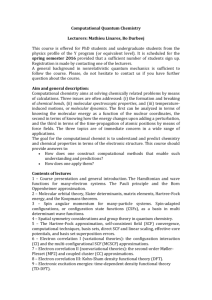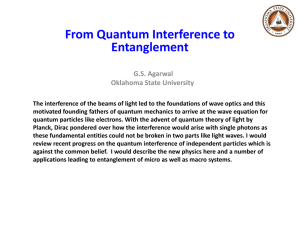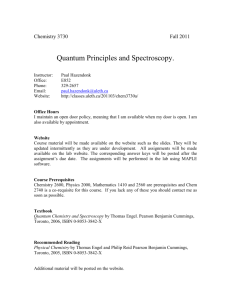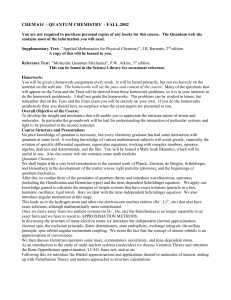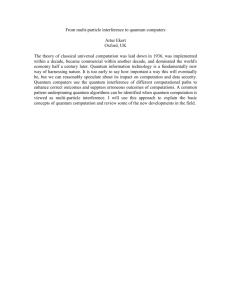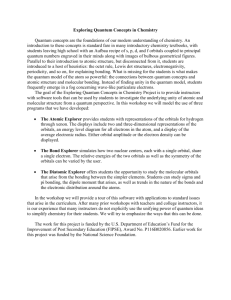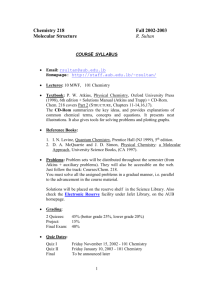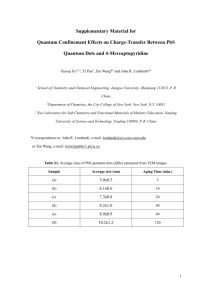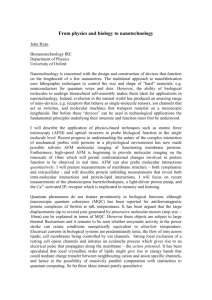Quantum Chemistry: Different, but Powerful
advertisement
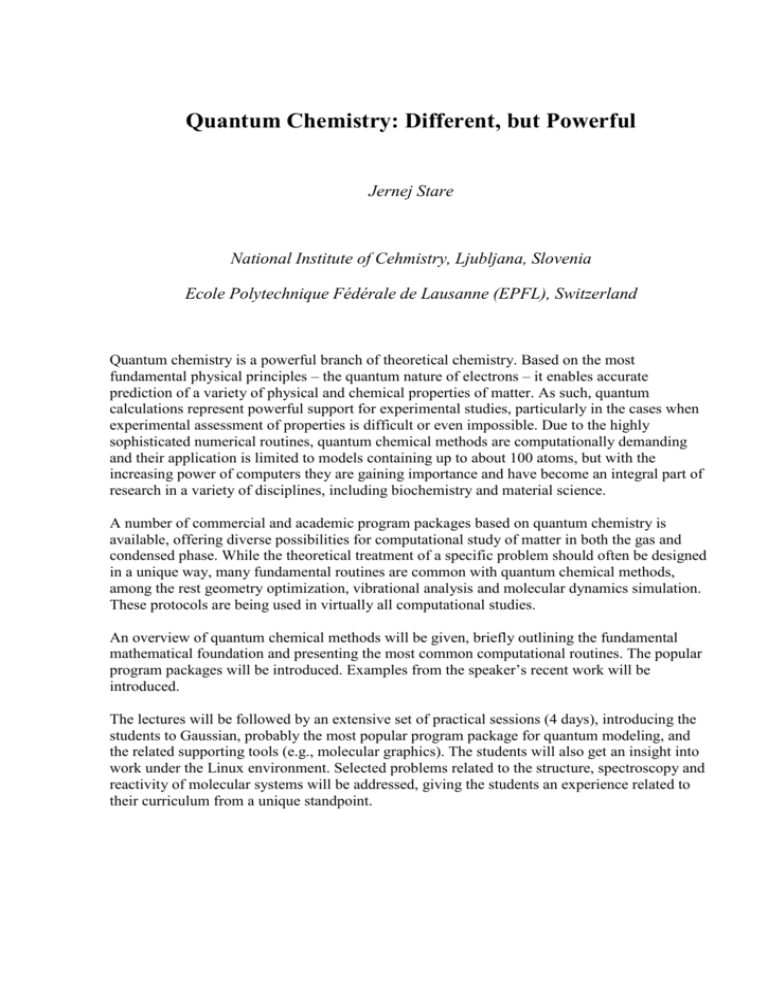
Quantum Chemistry: Different, but Powerful Jernej Stare National Institute of Cehmistry, Ljubljana, Slovenia Ecole Polytechnique Fédérale de Lausanne (EPFL), Switzerland Quantum chemistry is a powerful branch of theoretical chemistry. Based on the most fundamental physical principles – the quantum nature of electrons – it enables accurate prediction of a variety of physical and chemical properties of matter. As such, quantum calculations represent powerful support for experimental studies, particularly in the cases when experimental assessment of properties is difficult or even impossible. Due to the highly sophisticated numerical routines, quantum chemical methods are computationally demanding and their application is limited to models containing up to about 100 atoms, but with the increasing power of computers they are gaining importance and have become an integral part of research in a variety of disciplines, including biochemistry and material science. A number of commercial and academic program packages based on quantum chemistry is available, offering diverse possibilities for computational study of matter in both the gas and condensed phase. While the theoretical treatment of a specific problem should often be designed in a unique way, many fundamental routines are common with quantum chemical methods, among the rest geometry optimization, vibrational analysis and molecular dynamics simulation. These protocols are being used in virtually all computational studies. An overview of quantum chemical methods will be given, briefly outlining the fundamental mathematical foundation and presenting the most common computational routines. The popular program packages will be introduced. Examples from the speaker’s recent work will be introduced. The lectures will be followed by an extensive set of practical sessions (4 days), introducing the students to Gaussian, probably the most popular program package for quantum modeling, and the related supporting tools (e.g., molecular graphics). The students will also get an insight into work under the Linux environment. Selected problems related to the structure, spectroscopy and reactivity of molecular systems will be addressed, giving the students an experience related to their curriculum from a unique standpoint.


